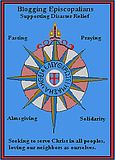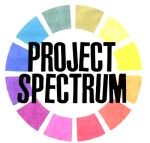mission of the church continued
I'm still digesting the discussion we had last week at School for Ministry with Professor Michael Kinnamon of Eden Seminary (see Thursday's post).One of the pertinent topics we launched into was the question, "What is the place of other faiths in God's plan of salvation? Is it possible to affirm the revelation of Jesus Christ and say it's ok to remain in one's own tradition?"
Prof. Kinnamon highlighted the urgency of the question by pointing out that in the U.S., in 1965 1% of the population practiced a non-Christian tradition, and that currently that number stands at about 10%. So figuring out how to be authentically Christian while being a good neighbor (in the civic sense as well as the faithful sense) is a real issue.
Some comments he made that I want to highlight (again, if I misunderstood him, the error is mine):
Because Christ is Christ, Christians know where salvation is.
Because God is God, we don't know where salvation isn't.
I like that paradox quite a bit, because I think it walks the line we Anglicans try to hold dear--that we can know God in Christ (that would be the Incarnation) but that there are things about God we can never know in this life (that would be the transcendent mystery of God.
Real dialogue means being in a mutually vulnerable posture.
He expanded this to mean that real dialogue is not possible unless one is open to the possibility of one's position being changed. Something we're not experiencing in our national civic or international faith discourses, I'm afraid.
He did warn us that there are limits to diversity. Not everything is good. The caste system, for example, in his experience of living and teaching in India. So my thought is that if we're going to engage in mutually vulnerable dialogue, we're going to have to admit that there are things we Christians engage in that perhaps are not all part of God's plan for creation.
Some links he shared with us: all God's People and the Interfaith Education Initiative.

























1 Comments:
Hey, Emily -- thanks for this post. The paradox that Kinnamon highlighted, and the recognition of mutual vulnerability are excellent, just splendid. And I too, am always glad to meet another Episcopalian blogger.
Post a Comment
<< Home